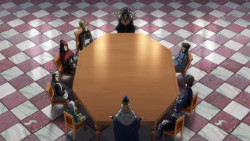 |
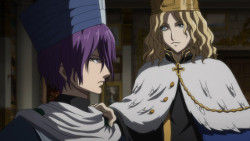 |
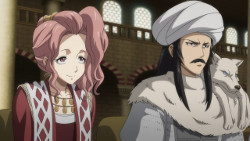 |
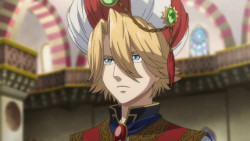 |
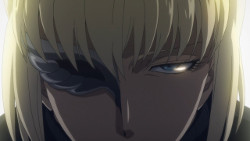 |
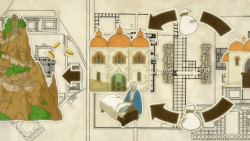 |
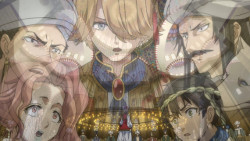 |
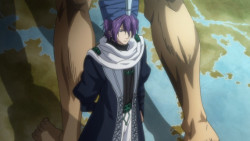 |
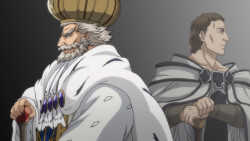 |
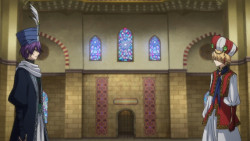 |
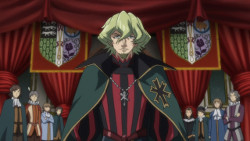 |
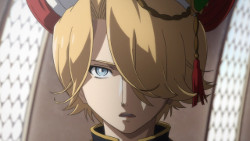 |
 |
 |
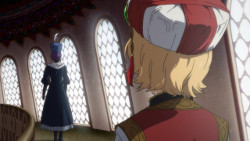 |
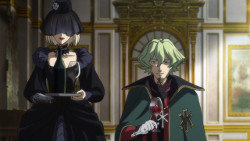 |
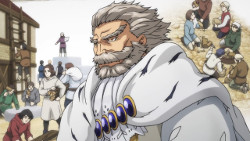 |
 |
 |
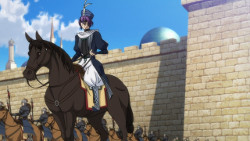 |
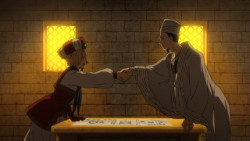 |
 |
 |
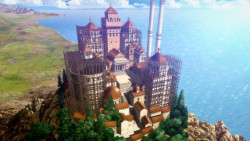 |
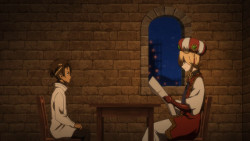 |
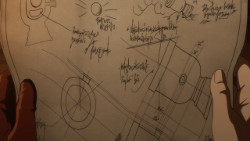 |
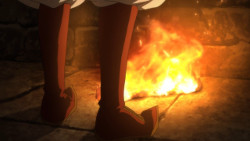 |
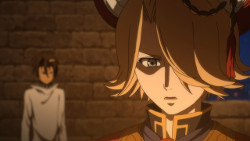 |
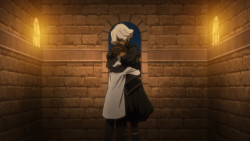 |
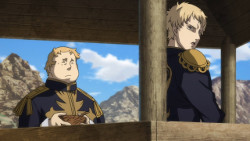 |
 |
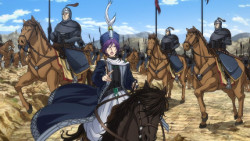 |
 |
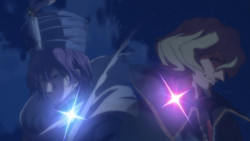 |
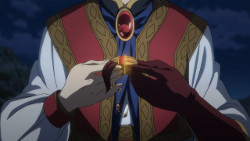 |
 |
「胎動」 (Taidou)
“Instigation”
While disappointing (but unsurprising) that Altair has no sequel in its foreseeable future, it makes me happy knowing the finale held nothing back when it came to the show’s underlying themes. Simplistic good and evil and a fight for survival was firmly dispensed with, showing at last the true situation of states (and people) fighting not just for life, but for dominance. Altair always had a tinge of politics’ inherent subjectivity undercutting its many events, but it took until now with Turkiye’s rise to prominence to fully reveal the elephant in the room. No matter the day and age, no matter the form of intention, states (and people) always strive for the same thing: survival through any means necessary.
Mahmut of course retains his good nature this week, firmly committed to helping the people of Cielo and limiting the impact of war, but it’s tragically ironic how through all his harsh learning he still cannot see the frailty of his ideals. War for all its suffering will never disappear, there will always be one in a position of power who sees violence as the only recourse. Halting the war (or reckoning) with Balt-Rhein does nothing but delay the inevitable, the empire’s potential reforms may work for a time, but new circumstances always arise and old solutions can quickly prove obsolete. As Mahmut will quickly come to learn with his rejection of the verified cannon technology, if an idea exists, it never takes long before someone with less stringent morals takes full advantage of it.
In the same vein, however, Zaganos’ own dreams of peace through empire are flawed. Eradicating all those who wish for war may be a solution, but it’s one conveniently ignoring the subsequent creation of more seeking it anew. Zaganos never really seems to consider this, acknowledging the limitations of his own views while ignoring the long term dangers. Turkiye could very well win and forge a benevolent empire, but such things always—always—turn into the very thing they are fighting Balt-Rhein over. It may take 10 years, a hundred, or even a thousand, but every state (like every life) eventually succumbs to the idiosyncrasies of the next generation. Quite funny how Louis of all people apparently understands this, seeking an image and standard of empire to pass the test of time in place of some eternal peace. Balt-Rhein may perish in the fights to come, but if Louis has his way, its system of empire (much like Rome’s for us) will set the gold standard for generations to come.
For a series so focused on the politics of nation-states, it’s the perfect debate for Altair to leave off on.
Final Impressions
Coming into Altair, I never expected to wind up loving it. Arslan Senki (particularly its second season) had left a bad taste in my mouth, and with Altair promising a similar style of story, my expectations were low. Couple it with Altair’s slow start and its relative dryness and it truly seemed destined for the drop pile. Then, however, the politics started emerging, Mahmut started developing, and by hell did Altair’s writing and research start shining on through. It was a story with an unassuming coat, but that inch-wide image concealed material a mile deep.
The important thing to consider with Altair is that it’s a niche series. It may be a tale of characters and Mahmut’s rise and redemption, but it’s ultimately about the countries and their struggles. You must have an interest or curiosity in political science (particularly international relations) to get the most out of it, you must care for the rise and fall of states, find intrigue in their actions, explanations for their contradictions. Geography, economics, military strategy, even the personal whims of leaders, all factor in to how Altair’s story plays out. It’s certainly possible finding enjoyment without once considering these elements or giving them serious thought, but a lot of the meaning and reasoning behind particular developments would be lost. Mahmut’s own personal moral struggles, Zaganos’ strategy, the explanation for Louis’ schemes, fully appreciating these various facets for example demands broad knowledge to see why each plays out in its own way and why Altair shows them to all be flawed at their core. So long as you have the political bug it’s the most potent form of crack possible, but you first must have the bug to understand why.
Structurally, however, Altair’s true weakness would have to be its pacing. There’s no beating around the bush, the show rushed awfully fast, with the civil war arc arguably being the worst case, and even outright skipping another arc entirely. Characters were introduced and subsequently forgotten about in the span of a single episode, details revealed in the blink of an eye with often little time spared to properly digest them. This show at times sorely tested one’s ability to stay focused and comprehend all the intertwined tangents, which in part may explain the distaste some had for it overall. Altair certainly made the most out of the situation by remaining remarkably coherent from start to finish, but coupled with its inherent political focus it often became a show more about “bland” political machinations than the trials and tribulations of key characters. It’s debatable whether Altair could have broadened its audience reach with a more imaginative adaptation, but there’s no denying (at least for me) that it succeeded with flying colours with the story it set out to tell.
While Altair will likely fade away forgotten in the seasons to come, it is for me one of the strongest historical fantasy series we have received in a good while. As a political show it did everything right, displaying tremendous knowledge and an innate understanding of international order few anime have ever succeeded with. Sure it may never ascend beyond niche status the way the likes of Gundam, Code Geass, or hell even Valkyria Chronicles have, but for those of us who enjoy the nuances of collective human conflict, it’s the show that will never stop giving. For a series so rich in this type of material, there’s no higher praise.

I read the manga and the manga-readers were right – the anime doesn’t really do it justice. As someone who’s watched through the entire series first, Altair does require a bit of patience. The second contour didn’t live up to the first half though. I was expecting the animation to pick up at the finale but it never did. Seems like it all went to the finale of the first half.
Still, besides the pacing issue the anime suffered, I’m happy with it still. Glad it got me to discover this wonderful series. I’ll be keeping up with it with the manga that’s for sure.
I never thought the animation was terrible, but agreed, it definitely got worse as it went on, particularly for some of the battle scenes.
I also wouldn’t say the series takes patience as much as an interest. If you have a penchant for history and historical fiction for example, you’re bound to get caught up in it sooner rather than later—patience factors in if you’re only here for the characters. Altair I found did a fantastic job of providing enough information throughout to prevent boredom and keep you glued to the screen.
How much manga content has the anime covered so far? Because I’ve heard the current manga chapters are in the middle of an endgame story arc.
The anime managed to end partway through the first half of volume 15. Admittedly, the anime does speed through/cut a lot of material that I highly recommend reading. In fact, I recommend reading the whole series; the anime was certainly entertaining but there are definitely manga parts that many readers wish were included.
For someone like myself that didn’t read the manga I think it was a must watch weekly event and I don’t even really like politics but seeing it from the perspective of Mahmut was great and his development throughout the season was hard earned and satisfying. I like the icing in the end of this episode that shows that he is still young and learning. By and large all three protagonist have really the same ambition – to protect their homeland and to see it prosper – this is what Mahmut, Louis and Zag been doing. Pity there won’t be another season as it will be missed. Quite a unique show and you provided amazing insights along the way Pancakes. Thanks.
Glad you liked it! I had a blast covering it that’s for sure.
Never thought I’d wind up enamoured of this series, but damn did it ever get interesting once the introductions were out the way. Plus it’s a pretty good appetizer for Legend of the Galactic Heroes’ reboot coming in spring 😛
https://randomc.net/image/Shoukoku%20no%20Altair/Shoukoku%20no%20Altair%20-%2024%20-%20Large%2018.jpg
I wished this show had the budget for 52 episodes. While it certainly felt rushed, I still enjoyed what they were trying to convey. I certainly fall into that small specific target audience, and from my perspective they did a decent job. Could they have done a better job with what resources they have? Who knows. But at least it didn’t disappoint as much as Lord Marksman and Vanadis.
Thanks to Pancakes and whoever else filled in the real life historic references here. It certainly made things more fun, especially when I missed those references.
Finally,
https://randomc.net/image/Shoukoku%20no%20Altair/Shoukoku%20no%20Altair%20-%2024%20-%2036.jpg
There’s a chance he might actually end up as the last competent general with combat experience in this world. No direct front-line duty and a lifetime of experience for such a young age.
I miss this show already. It’s an absolutely fantastic anime with brilliant staff and cast of voice actors. I never really liked Ayumu Murase before, but he did a great job with Mahmut. I also enjoyed the anime original parts such as the conversation between Mahmut and Zaganos in this episode, it really showed the opposing views of the two characters really well. This finale was great! Thanks for your coverage, Pancakes.